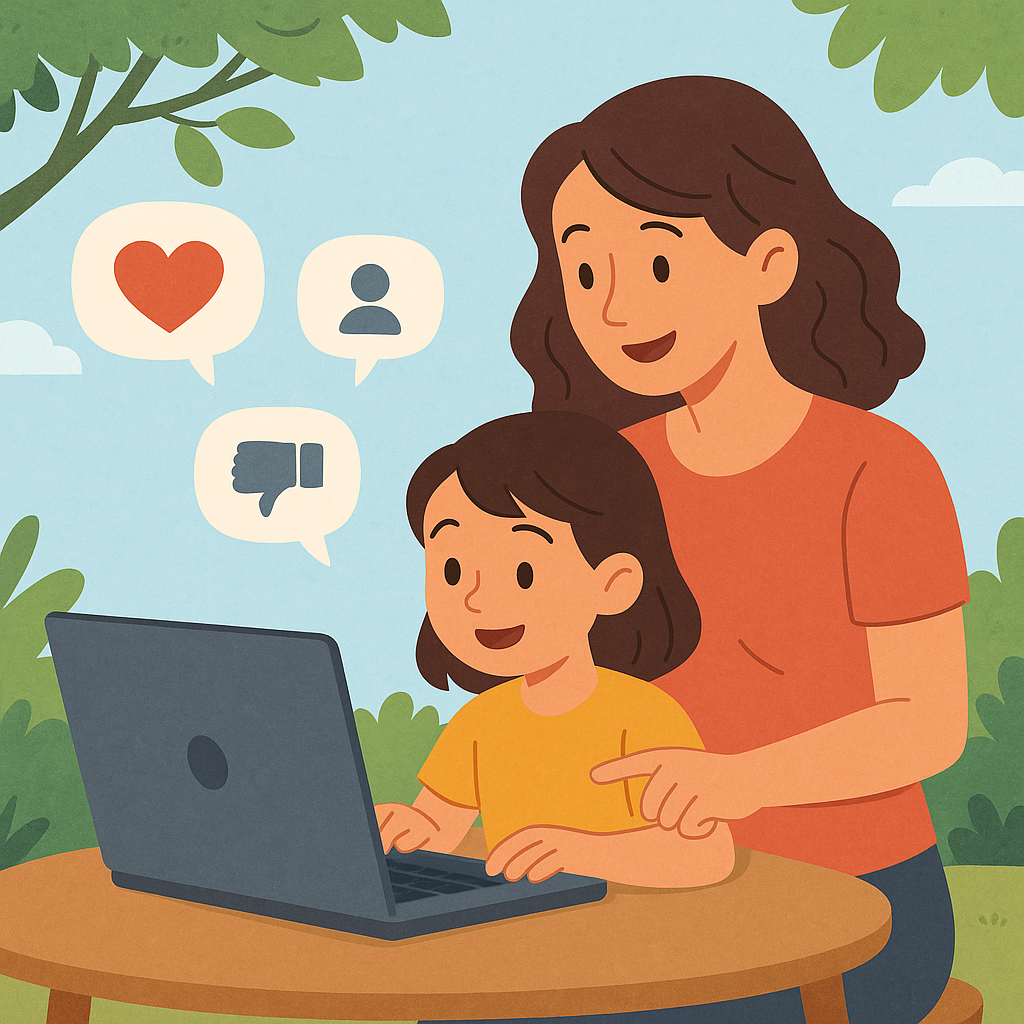Summer’s here, school’s about to be out. Phones are on. And whether it’s TikTok, gaming chats, YouTube, or private group messages – your kids are about to spend a lot more time online
That means more content, more connections… and more chances to leave digital footprints that last far longer than the summer sun: What they post, say, and share now could stick around for years – and come back to haunt them when it matters most.
As a parent, you don’t need to micromanage every click. But you do need to help your children understand one essential truth:
Everything they post, share, or say online shapes how the world sees them—sometimes forever.
At Buzz Dealer, we usually help founders, executives, and brands clean up or rebuild their online image. But if there’s one thing we know for sure – it’s a lot easier to build a smart online reputation from scratch than it is to fix a damaged online reputation later.
This summer, we encourage you to teach your kids the basics of online reputation and give them a head start. Here’s how to introduce them to online reputation management in a way that actually sticks – without the eye-rolls or lectures.
1. First Rule of ORM: The Internet Never Forgets
It doesn’t matter if a post is deleted. Once something is uploaded, it’s out of your hands: Screenshots, shares, cached pages – once uploaded, become public domain.
Explain it in a way they’ll get. You can try:
“Imagine if someone could screenshot it and show it to your mother/father, to your teacher, future boss, or grandma – would you still post it?”
Kids often post impulsively, without a second thought about the consequences. Make them understand the consequences, and they may think twice, which is what you want. They need to understand that some content won’t stay as private as they think.
Lesson: Whatever you post today can and most probably will be used against you tomorrow, and could ruin your life. So think twice before you post.
2. Likes Fade. Reputations Don’t.
Social media is built to encourage attention seeking. It rewards content uploading with dopamine hits that come packaged as “reactions” – likes, follows, and viral moments. This system can easily program kids to view online attention as real-world respect. You need to teach them otherwise: Online attention doesn’t necessarily mean real world respect – it could mean the exact opposite.
Teach them to prioritize what matters more:
- Respect over popularity
- Privacy over instant likes
- Substance over shock value
Tip: Encourage them to follow creators or influencers who they feel are positive role models, and the way to choose a real role model is to choose those who lead with positivity, creativity, or real knowledge – not just controversy or drama.
3. Not Everything Is Meant to Be Shared
This one’s big, and also might be the hardest one to teach.
With smartphones always nearby, it’s tempting to post everything – friend drama, group chat screenshots, snarky comments, inside jokes, inside references, frustrations, even private messages. These things can feel harmless in the moment. But they don’t always land the same way outside of context.
Ask them:
“Could someone who doesn’t know you take this the wrong way, or worse: use it against you?”
If the answer is yes, it’s probably not worth posting.
4. Google Yourself – Together
Here’s a fun exercise that makes for good quality time and a nice summer activity: Sit down with your kids, open an incognito window and Google your and their name together.It’s a fun (and often eye-opening) way to show them how search results become a kind of digital resume. You might find:
- Old social profiles
- Tagged posts and photos from friends
- Comments on forums or gaming platforms
- Public profiles they forgot they had
Pro tip: Don’t turn this into a lecture. Make it collaborative. Let them take the lead in thinking through what they find.
5. Help Them Think Like a Brand
Yes, even kids have one – even if they don’t realize it yet.
A digital brand is the impression someone gets of you online, based on your content, tone, interests, likes, comments and activity. It’s not about being fake. It’s about being mindful and intentional.
How to frame it:
- “What do you want people to think when they see your profile?”
- “What kind of person do your posts reflect?”
This is about awareness, not perfection. The goal is to help them understand how they show up online. Let them start thinking like digital citizens – not just users.
6. Mistakes Happen – But They Can Be Fixed
Don’t turn online reputation into something scary or rigid. The point isn’t to stop your child from being themselves – it’s to help them make smart choices and know how to respond when something goes wrong.
If they post something they regret, remind them:
- It’s okay to take it down
- It’s okay to apologize
- It’s okay to ask for help
They’re still learning – and that’s the whole point
Final Word: This Summer, Give Your Kids a Digital Head Start
Summer vacation is the perfect time to help your kids understand the bigger picture – their digital life doesn’t just reflect who they are now. It shapes how people will see them later, because what they post at 14 can follow them at 24.
And the best part? Once they get it, they’ll start thinking more critically – on their own.
Want to go deeper? At Buzz Dealer, we help professionals shape their digital footprint. But if you’re a parent who wants to do the same for your child – start with these conversations now. Their future self will thank you.

